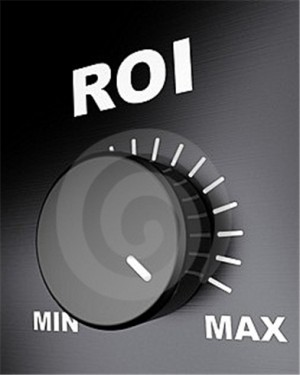 I thought I had the world figured out when I moved to New York. ?The apartment I rented had bathroom tiles imported from Spain that made it feel like I was showering in a tropical grotto. ?While the yearly rent was 1/4 of my yearly pre-tax salary, I wanted to and felt like I was living the dream.
I thought I had the world figured out when I moved to New York. ?The apartment I rented had bathroom tiles imported from Spain that made it feel like I was showering in a tropical grotto. ?While the yearly rent was 1/4 of my yearly pre-tax salary, I wanted to and felt like I was living the dream.
At the end of the first few months, I would end up with less than $50 dollars in my bank account. ?Reality woke me up when I almost had to borrow some money from a friend to make ends meet one month. ?So much for having the world figured out! ?My ?living the dream? was fast becoming a ?nightmare.? ?Out of necessity, I started to focus on my personal finances.
Two years later I had cut my rent to 6% of my pre-tax salary and my new apartment building had a gym, a door-man and was 1 block away from the subway station. ?My bank account balance never got down to $50 dollars at the end of the month again. ?Now, I was much closer to living the dream!
As leaders in early stage businesses, we constantly have to evaluate the return on investment (ROI) of our decisions. ?Do we invest in online vs offline advertising, do we invest in branding vs technology, do we invest for the short term or long term, etc. ?Every decision we make for our business is scrutinized as pros and cons are weighed. ?Why then, do we find it so difficult to translate that thinking to our own personal financial lives?
The ROI of my personal spending decisions was killing me. ?Once reality hit, I started treating my personal finance decisions like business decisions. This involved scrutinizing my spending habits like they were investment projects ? what was the expected financial and happiness return for the spend. ?Slowly but surely, I dug myself out of the hole and returned to financial stability.
The first step was focusing on compounding returns.
A healthy portion of my discretionary spend was based around after-work drinks which I had convinced myself were good from a networking point of view. ?Doing some quick math one night I realized that it was more like a one time project that only yielded the pain and suffering of a hang-over the next morning. ?In fact, most of the networking occurred during the first hour if at all ? after that things went down hill. ?So I found discretionary spending projects that had compounding returns ? like cooking classes, which continue to pay off every single night. ?This way less money was spent while yielding greater returns over the long haul.
The second step was focusing on auxiliary costs.
I had a good idea of how much I was spending on activities, but not how much I was spending on the supporting activities. ?For example ? A trip to the driving range cost $30 dollars, which was easy to slot away in my head as not overly expensive. ?However, as I slowly focused on the auxiliary costs, I realized that I was spending money on lots of other things while I was there ? renting a few golf clubs, buying an extra buckets of balls, enjoying some lunch, as well as spending the next week fantasizing about playing a great deal more golf. ?All of a sudden, it wasn?t just $30 that were spent at the driving range, it was closer to $100. ?Yikes ? I was severely undervaluing the cost of that one activity. ?Sadly, it was the same with a great deal of other activities. ?Taking into account the total cost really made a difference.
The third step was focusing on the time horizon from investment.
Slowly I realized that it was important to focus on how much time the pleasure could be enjoyed. ?While I loved spending $5 dollars at Starbucks on a Friday treat, the joy only lasted about 30 minutes. ?However, I could get the same amount of enjoyment from buying a $5 dollar e-book from Amazon and spend a full week reading it. ?Now instead of a having a Friday treat, I had a weekly treat!
Focusing on these three steps definitely helped me focus on the ROI of my personal finances as well as bringing more stability to my life. ?My advice would be, start by focusing on one aspect of your spending and go for the small wins. ?Slowly but surely, just like interest rates, the benefits will accrue naturally.
Sebastian Gutierrez is the co-founder and CTO of LetsWombat.com. ?Outside of his day job of connecting brands with event audiences, he loves to explore NYC food spots, art galleries, and help fellow entrepreneurs succeed. ?Follow him on Twitter here.
Category: Personal Finance
jr martinez melasma jimmy rollins jimmy rollins let it snow jason trawick jerry lewis
No comments:
Post a Comment
Note: Only a member of this blog may post a comment.